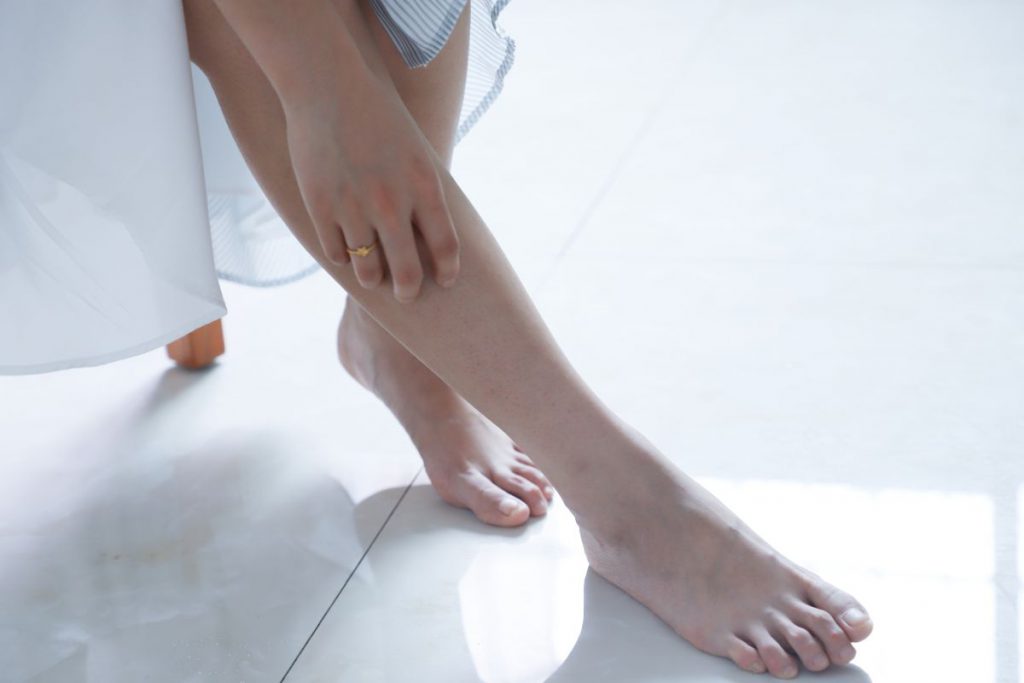Feet support your entire body so you need to give them some care and attention. Wearing wool socks and warm boots doesn’t mean you can forget about your foot skin – moisturising and exfoliating. What should a winter foot care look like?

We care for our hair, nails, facial skin. We systematically apply hand lotions. We even devote time to nourish our eyelashes. While using oils, creams, balms and lash serums, we often forget about our feet. It’s a huge mistake that we can pay a huge price for.
Healthy feet in winter
Winter is the time when our feet are mostly exposed to lots of harmful factors. Freezing or sweating (e.g. after the whole day wearing warm boots). Covered shoes and thick socks reduce the circulation of air and that’s why the foot skin is dull, dry and greyish. In winter, most common foot ailments occur e.g. fungus because the bacteria and fungi have ideal conditions for development. You’ll face up to such problems if you don’t make some simple changes in your everyday skincare routine.
What’s the winter foot care like?
To avoid looking at extremely dry and damaged feet in spring, you must care for your feet in winter. At first, it’s best to change some bad habits which deteriorate the condition of foot skin. How to begin?
• Don’t wash your feet with hot water! Too high temps intensify sweating, leading to loss of hydration. Even in winter, you should choose cool feet baths.
• After showering or swimming in the pool, dry your feet precisely! Never forget about it because humidity triggers the development of fungus.
• In winter, use powders, anti-sweating insoles or antiperspirants. Shoe deodorants come in useful, too. These products reduce sweating. Lots of them prevent bacteria and fungi, neutralizing the bad smell.
Winter Foot Care – Cream + Scrub
If you wonder how to care for feet in winter, remember two key foot care products – a cream and an exfoliator. Every day after a bath, apply a moisturising and repairing cream which softens the epidermis and protects the skin against dryness or cracking. Since the skin is thicker and more calloused in winter time, you must regularly exfoliate dead skin cells e.g. with a pumice stone and scrub.


